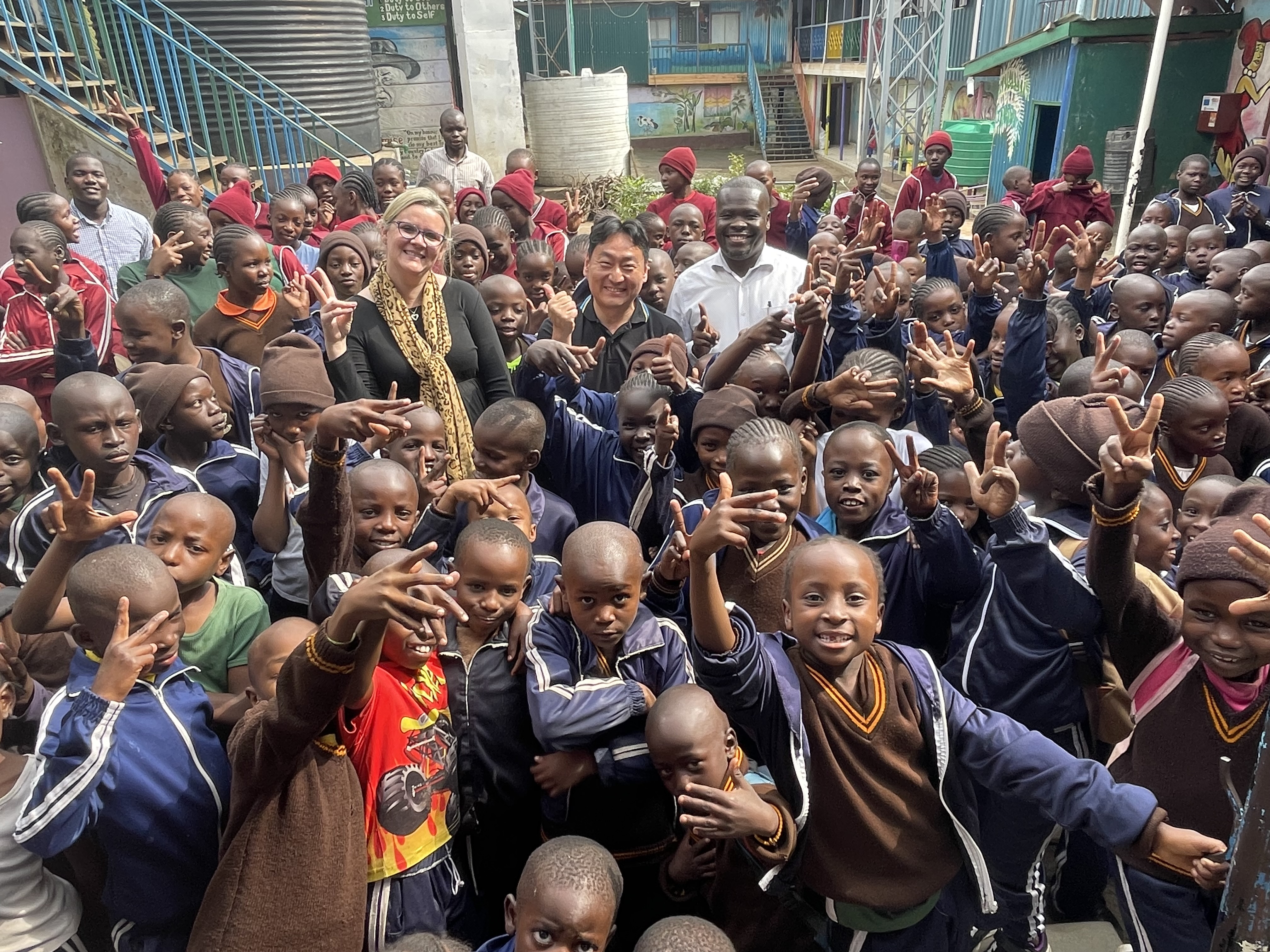We have to break the limits of our current health care system.
Shintaro Omuro reflects on community health as a strategic pillar for Astellas’ sustainability engagement.
One year ago, Shintaro Omuro left the Astellas Development Division to become Head of Social Contribution for the Sustainability Division. Now, as he is about to take over as Head of Sustainability’s Center of Excellence, Shintaro talks about his experience in improving community health from the perspective of Astellas as a leading global pharmaceutical company, and as Vice President of the Astellas Global Health Foundation.
When Shintaro Omuro joined the Sustainability team after 20 years of work for Astellas’ Development Division to improve the company’s community engagement strategy, he faced a difficult situation: Astellas had never really engaged with society as part of its sustainability activities. “Without knowing left or right, but with the wish in my heart to create a better society, my team and I started two pilot programs, one for community engagement, and the other for health education.” Both programs were first of a kind for Astellas. “In the early days, things often went wrong. They just didn’t work,” Shintaro remembers.

In August 2023, overwhelmed from the obstacles on all sides, Shintaro joined a wellbeing seminar, hosted by the Community Nurse Company. The social enterprise is working in and with communities on a holistic health care approach. The “nurses”, people who live in the community, look at mental and social health, next to physical health, and find ways to educate and support their fellow community members through a range of activities. “It was like a ray of light, some good fortune for our community engagement program,” Shintaro continues. “Only a few days after the seminar, I met again with the ‘Nurses’. We hit it off immediately, and the next day, I was picking up trash as a volunteer in a shopping street with the Chairman. It was a historic moment, which allowed us to enter the community for the very first time and in person.” In October the same year, Astellas held its first health care related event in the shopping street, and the following month, Astellas and the Community Nurse Company launched the “Good OSEKKAI Award”, which recognized members of the community for their altruistic engagement.
Shintaro comes from an underprivileged family. His grandfather was a first son of many siblings, who had to start working hard for a living just after his graduation from junior high school. His father worked on a low income, and only a scholarship enabled Shintaro to go to university. “When my grandparents grew up, Japan was a very different country. The health system was much less advanced, and we only had a few modern hospitals. Health was much more based within the community. Our family doctor visited our house and provided basic health care. Today, health is moving away from the community, and our health system treats illnesses, rather than making sure we stay healthy: physically, mentally and socially.”
In January 2024, Shintaro visited Kenya, where the Astellas Global Health Foundation is supporting communities through grants provided to its partner organizations AMPATH, Amref and PATH. This was Shintaro’s very first visit to the African continent, and he had the chance to meet with representatives of the partner charities, as well as with people from the local communities. What he heard and saw reminded him of Japan, back in the earlier days. “I was shocked to see that both community engagement and health education are much more recognized as necessary pieces of health promotion by the health and education authorities.” In Kenya, like in most African countries, health is strongly based at the community level. The few hospitals are too far away for many people, and travelling for treatment is too expensive. Community health promoters, similar to community nurses, are the first stop for almost everyone.
“At this moment, my conviction turned into my mission”, Shintaro remembers. “I must implement community engagement and health education in Japan. We have an excellent healthcare system, centred around hospitals. The universal health care system is also generous. But this seems to be one of the reasons why community engagement and health education were forgotten in Japan, or in many other industrialized nations. The development of one can hinder the development of the other. We have to break the limits of our current health care system, and include community health as another important pillar.”
Shintaro continues to establish community health as a main priority for Astellas’ social engagement: “We have to learn to see health as more than the absence of illness. As a pharmaceutical company, we can do more than to support recovery from a disease. When we invest in community health as part of our social sustainability, through foundation grants, and through corporate partnerships and donations, we can increase the significance of lower-level health care and reduce the care cost. That will also impact our business positively. At the same time, we can strengthen the sustainability of health systems in countries like Kenya and improve the care which is available in local communities.”
